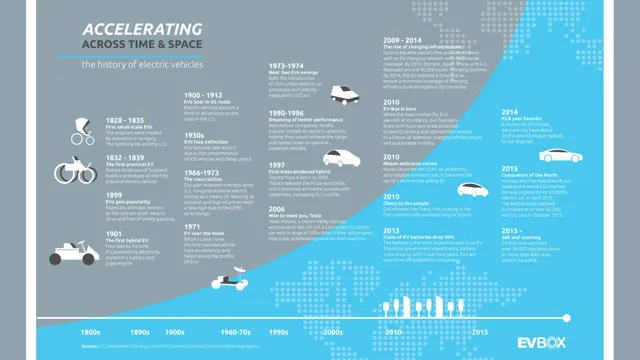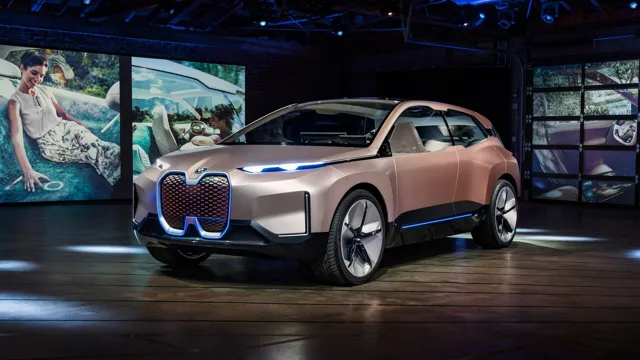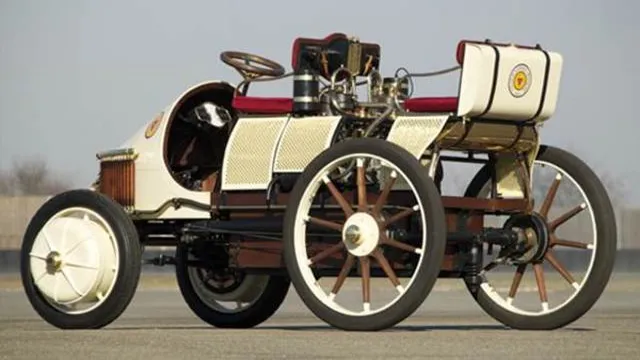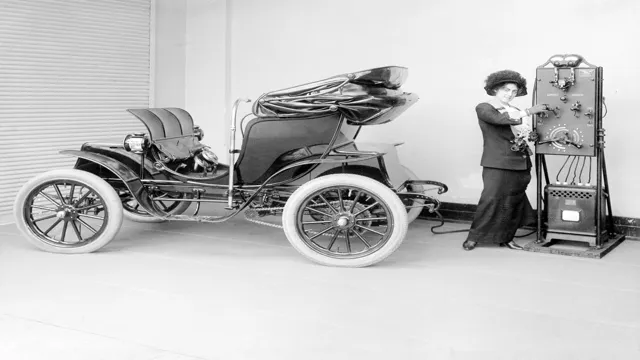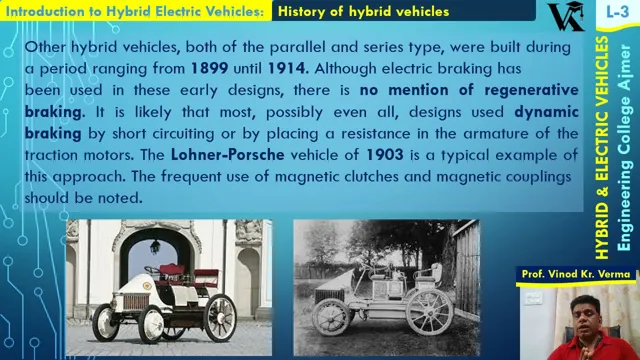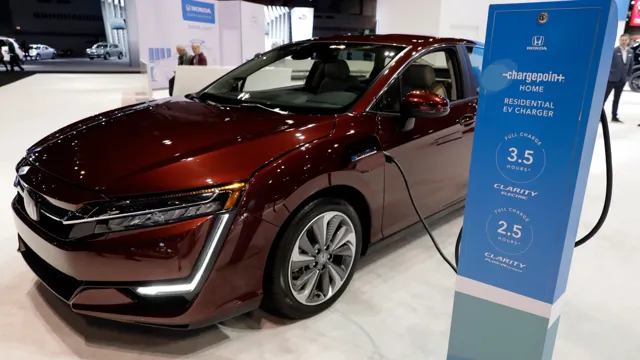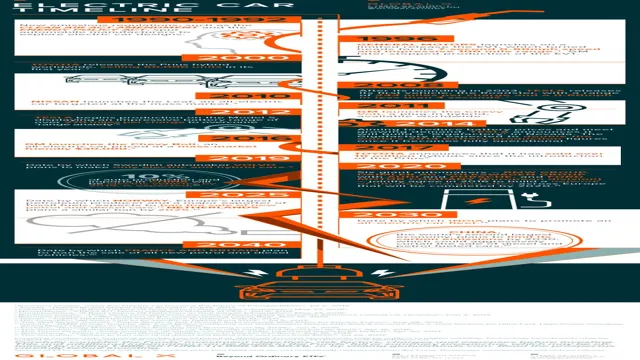Exploring the Evolution of Electric Cars: A Look at Toyota’s Rich History
Toyota has been at the forefront of automotive innovation for decades, and their electric car history is no exception. From the early days of the RAV4 EV to the more recent success of the Mirai, Toyota has proved time and time again that they are serious about fuel efficiency and sustainable transportation. Their journey to creating practical and reliable electric vehicles has been a long one, filled with trial and error.
It began in the late 1990s with the release of the RAV4 EV, which was ahead of its time but ultimately didn’t catch on with consumers. Toyota didn’t give up though, and continued to invest in electric and hybrid technology, leading to the success of the Prius and eventually the game-changing Mirai hydrogen fuel cell vehicle. The development of each of these vehicles was a learning process, and Toyota continues to push the boundaries of electric and alternative fuel vehicles.
With the recent unveiling of their new all-electric SUV, the bZ4X, Toyota is once again proving their dedication to sustainable innovation. As electric cars become more and more mainstream, Toyota’s history of electric vehicles serves as a reminder of the importance of perseverance and continued development in the pursuit of a sustainable future.
Early Years of Electric Vehicles
Let’s take a look back at the early years of electric vehicles and the role that Toyota played in their history. Electric cars have been around for over a century, but it wasn’t until the 1990s that they started to gain some traction in the market. Toyota introduced the RAV4 EV in 1997, which was one of the first electric vehicles to be mass-produced.
While the RAV4 EV was only available for lease in California, it marked a turning point in the industry and served as a stepping stone for future electric cars. Toyota also introduced the Prius in 1997, which was the first mass-produced hybrid vehicle and a major breakthrough in the automotive industry. Today, Toyota continues to lead the way in electric and hybrid technology with their popular Prius and other hybrid models.
As society becomes increasingly aware of the need for sustainable transportation, the history of electric cars and their pioneers like Toyota will continue to be an important part of the industry’s growth and development.
Toyota’s First Electric Vehicle: RAV4 EV
The early years of electric vehicles were met with much skepticism and uncertainty. However, Toyota was one of the companies that took a leap of faith in the technology. In 1997, they released their first electric vehicle in the United States, the RAV4 EV.
It was a collaboration between Toyota and Tesla, which was just starting out at the time. The RAV4 EV was the first electric SUV, with a range of 95 miles per charge, and it quickly became a favorite among drivers who wanted to reduce their carbon footprint. However, after only a few years on the market, Toyota discontinued the RAV4 EV due to low sales.
Yet, this experience laid the foundation for the company’s future endeavors in the electric vehicle market, with the release of the Prius Prime and hybrid models such as the Camry and Highlander. Despite the initial setbacks, Toyota’s commitment to sustainable transportation remains a driving force in their continued efforts to innovate and address climate change through electric vehicles.
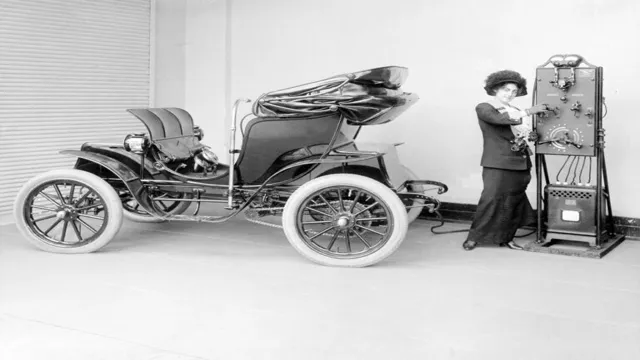
Discontinued and Reintroduced: RAV4 EV
The early years of electric vehicles were marked by discontinuations and reintroductions. One such example is the RAV4 EV, which was first introduced in 1997 but was later discontinued due to its limited range and high price. However, the RAV4 EV was reintroduced in 2012 in collaboration with Tesla, using their electric powertrain technology.
This partnership resulted in a significant improvement in the RAV4 EV’s range, up to 113 miles on a single charge. The vehicle also boasted impressive acceleration and regenerative braking capabilities, making it a popular choice among eco-conscious consumers. Despite its promising features, the RAV4 EV was once again discontinued in 2014 due to low sales.
However, its legacy continued to live on as Toyota continued to develop and invest in electric vehicle technology. Today, Toyota offers a range of hybrid and electric vehicles, including the highly popular Prius and the all-electric RAV4 Prime. In conclusion, the story of the RAV4 EV highlights the challenges and triumphs of electric vehicle development.
While it may have faced setbacks and discontinuations in its early years, it paved the way for future innovations and advancements in eco-friendly transportation.
The Birth of Hybrid Cars
Toyota has been a pioneer in the development of hybrid cars, which came about due to the history of electric cars. Early electric cars were limited by their range and battery technology, but Toyota saw the potential in combining the benefits of both electric and gas-powered vehicles. In 1997, Toyota released the Prius, the world’s first mass-produced hybrid car.
This revolutionary vehicle utilized an electric motor and gasoline engine to achieve superior fuel efficiency and reduced emissions. The Prius was an instant success, and Toyota continued to refine and improve upon its hybrid technology with subsequent models. Today, Toyota remains at the forefront of the hybrid car market, offering a wide range of hybrid vehicles that continue to push the boundaries of efficiency and performance.
Toyota’s Game-changing Introduction of Prius
Toyota’s introduction of the Prius in 1997 marked the birth of hybrid cars, forever changing the automotive industry. The revolutionary technology that made the Prius possible, combining a gasoline engine with an electric motor, allowed for greater fuel efficiency and reduced emissions. While some initially scoffed at the odd design of the Prius, it quickly became a favorite among environmentally conscious drivers.
Other manufacturers soon followed suit with their own hybrid vehicles, proving that fuel economy and sustainability could coexist with performance and style. The Prius remains one of the most popular hybrid cars today, a testament to Toyota’s forward-thinking and commitment to innovation.
Prius Goes Mainstream
Hybrid cars are now becoming more mainstream and readily available with the introduction of the Toyota Prius. The Prius, which was introduced in Japan in 1997 and later in the USA in 2000, was the first mass-produced hybrid car. Its unique combination of an efficient gasoline engine and an electric motor made it a revolutionary step in the automobile industry.
The idea behind the hybrid car was to marry the advantage of an electric car’s low emissions with the range and reliability of gasoline cars. Consequently, hybrid cars have gained more popularity throughout the years, with more and more manufacturers producing their own models. The introduction of hybrid cars has demonstrated that innovation and creativity can lead to the development of vehicles that are both environmentally friendly and practical.
The Prius was the beginning of this innovation, and we can only hope that the future will bring us more eco-friendly vehicles that will revolutionize the automobile industry.
Expansion of Toyota’s Hybrid Models
Toyota has been at the forefront of the hybrid car revolution, and their latest move is expanding their hybrid models. Hybrid cars were born out of a need to address the environmental concerns associated with the traditional combustion engine. Toyota started developing the Prius in the 1990s, and it was a game-changer in the automobile industry.
Today, hybrid vehicles have become a popular choice for drivers looking to reduce their carbon footprint and save money on fuel costs. Toyota is now expanding its hybrid offerings, with plans to have a hybrid version of every model by 202 This move shows that Toyota is committed to providing customers with more environmentally friendly and cost-effective options.
With the expansion of their hybrid line, drivers now have a wider range of options to choose from, making it easier to find a hybrid that suits their lifestyle and needs.
Toyota’s Focus on Hydrogen Fuel Cell Technology
Toyota has been at the forefront of hydrogen fuel cell technology for quite some time now. Even though electric cars have been around for more than a century, Toyota’s focus on hydrogen fuel cells signifies a paradigm shift in the automobile industry. Hydrogen-powered cars have several advantages over their electric counterparts – they have a longer range and a shorter refuelling time.
Toyota’s Mirai is one of the most popular hydrogen fuel cell cars in the market. The company’s bet on fuel cells seems to pay off, as it has invested heavily in hydrogen infrastructure development, including building hydrogen refuelling stations. With governments around the world planning to ban petrol and diesel cars in the near future, Toyota’s focus on hydrogen fuel cell technology for sustainable transportation is a smart and innovative approach towards a greener and healthier future.
Mirai: The First Fuel Cell Vehicle from Toyota
Toyota has been focusing on hydrogen fuel cell technology for many years now, and their efforts have finally paid off with the release of the Toyota Mirai, the company’s first fuel cell vehicle. This car runs on hydrogen and emits only water vapor, making it a great option for environmentally conscious drivers. The Mirai has a range of around 300 miles on a single tank of hydrogen, and it can be refueled in just a few minutes, making it a practical and convenient choice for daily driving.
Toyota hopes that this car will be the first of many fuel cell vehicles, as the company continues to innovate and improve upon their hydrogen technology.
Mirai’s Growing Popularity and Market Expansion
As the world moves towards more sustainable energy solutions, Toyota has been focusing on hydrogen fuel cell technology for its vehicles. With the growing popularity of electric vehicles, Toyota believes that hydrogen fuel cell technology has even more potential for clean transportation. Its Mirai model has been gaining traction in the market, with sales growing year on year.
In fact, Toyota recently announced plans to expand the Mirai’s market to include more countries, such as Canada and Australia, where the demand for clean transportation is also increasing. By investing in hydrogen fuel cell technology, Toyota is demonstrating its commitment to reducing carbon emissions and finding innovative solutions to combat climate change. As the market for renewable energy continues to grow, Toyota’s focus on hydrogen fuel cell technology could prove to be a smart investment for the future.
Future of Toyota’s Electric Car Technology
Looking back at the history of electric cars, Toyota was one of the pioneers in this technology with the introduction of the RAV4 EV in 199 However, the company shift its focus towards hybrids and hydrogen fuel cell vehicles in the following years. Nevertheless, with the growing demand for electric cars, Toyota has recently renewed its commitment to this technology.
In 2019, the company announced its plan to release 10 electric models globally by the early 2020s, starting with the C-HR and IZOA models in China. Toyota has also invested in solid-state battery technology, which promises to offer longer range and faster charging times compared to current lithium-ion batteries. The company aims to introduce this technology in its vehicles by the mid-2020s, which could be a game-changer in the electric car market.
The future looks promising for Toyota’s electric car technology, as the company continues its research and development efforts to provide sustainable and efficient mobility solutions for the future.
Conclusion
As we’ve seen throughout the history of Toyota’s electric cars, innovation and sustainability have driven Toyota’s commitment to creating a better world. From the first RAV4 EV to the current line of electric and hybrid vehicles, Toyota has been at the forefront of pioneering green technology and leading the way towards a cleaner future. So while the electric car may have started as a mere “toy” for some, it has now become an integral part of the automotive industry, and Toyota has proven itself a major player in this exciting and ongoing revolution.
“
FAQs
What is the history of electric cars produced by Toyota?
Toyota started producing electric cars in 1997 with the introduction of the RAV4 EV. They later withdrew from the electric car market in 2003 but re-entered in 2012 with the launch of the Prius Plug-in Hybrid.
How many electric cars has Toyota produced to date?
Toyota has produced three electric car models so far: the RAV4 EV, the eQ (also known as the Toyota iQ EV), and the Prius Plug-in Hybrid.
What is the range of Toyota’s electric cars?
The RAV4 EV has a range of up to 113 miles, the eQ can go up to 50 miles on a single charge, and the Prius Plug-in Hybrid’s electric-only range is around 11 miles.
What advancements has Toyota made in the electric car field?
Toyota is working on solid-state batteries that could increase the range of electric cars and reduce the charging time. They are also developing hydrogen fuel cell vehicles as an alternative to battery electric cars.

